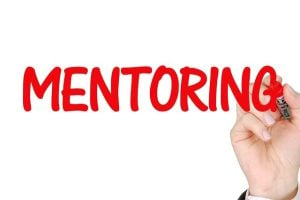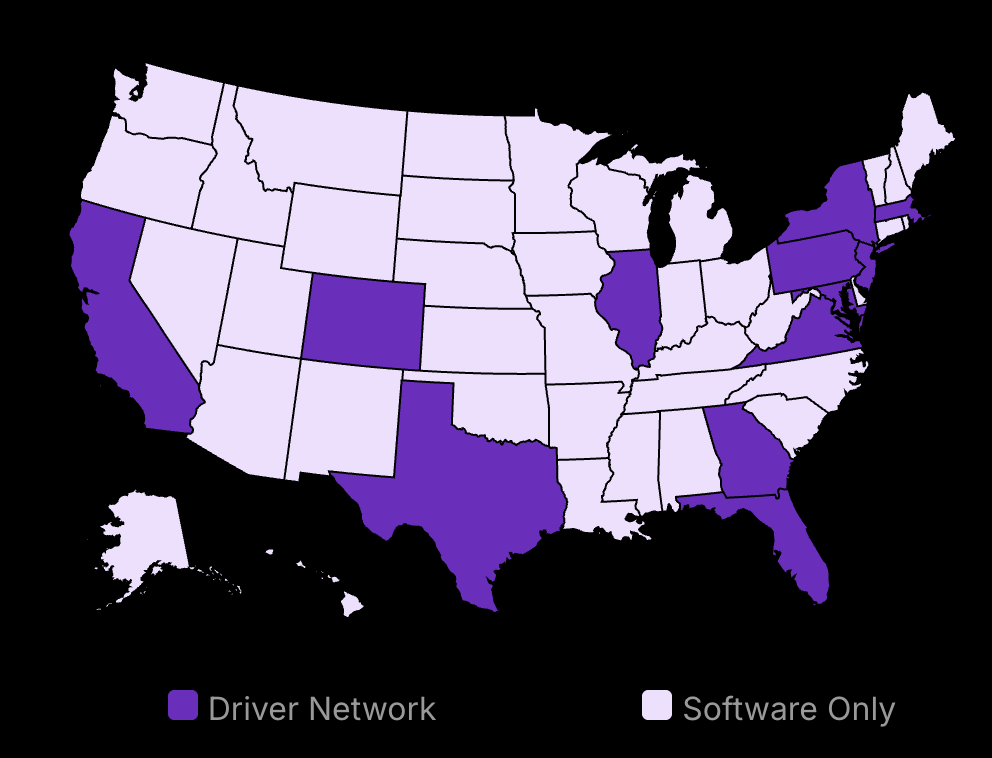Finding the right mentor feels a lot like dating – awkward, filled with rejection, and sometimes you end up in relationships that go nowhere. Most business owners I talk to have the same problem: they know mentoring relationship programs could change everything, but they have no idea how to start the conversation.
Here’s something most won’t tell you: great mentors aren’t looking for young people with a mentor-mentee relationship who have it all figured out. They’re looking for people who are teachable, committed, and honest about their challenges.
A recent study showed that 92% of small business owners agree that an experienced individual as a mentor directly impacts the growth and survival of their business. Yet only 22% have one.
What’s stopping you? Is it fear of rejection? Not knowing where to look? Maybe you think they’re too busy to help, or maybe you’re worried about wasting someone’s valuable time?
In this guide, I’ll share a simple, proven process for how to get a mentor who can help grow your business faster than you ever could alone. No complicated networking schemes. No awkward cold calls. Just practical steps anyone can take, regardless of your industry or experience level.
Metrobi drivers are rated 4.97 out of 5
Trusted by local businesses for:
- Background-checked professionals
- Specialized in business deliveries
- Same drivers for consistency
- 4.97/5 average delivery rating
How to Get a Mentor: Step 1 – Finding the Right Mentoring Relationship for Your Industry
Identify specific business challenges where you need guidance
Research potential good mentors with relevant industry experience
Make meaningful connections through personalized outreach
Finding a good mentor isn’t just about having someone to talk to—it’s about finding the right person who can provide targeted guidance for your specific business needs. The search begins with self-awareness and ends with making authentic connections.
Identify Your Needs and Goals For a Mentor-Mentee Relationship
Before searching for a good mentor, you need to understand what career pathways and specific areas you’re looking for. This critical first step prevents wasting time with mentors who don’t match your needs. You can start by taking inventory of your current business challenges, your career goals, and the specific areas where you need help.
Ask yourself these essential questions: What specific skills am I trying to develop? What business challenges keep me up at night? Where do I want my business to be in one year? Five years? Your answers will guide your mentor search toward people with the right experience and knowledge.
According to a 2023 survey by MicroMentor, 65% of entrepreneurs who clearly defined their mentorship goals reported finding suitable mentors within three months, compared to just 28% of those who began searching without clear objectives.
Creating a Mentorship Programs Wishlist
Create a “mentorship programs wishlist” document with three columns:
Business challenges I’m facing
Skills I need to develop
Industry knowledge gaps I need to fill
This document becomes your roadmap for finding the right mentor. You should be specific—instead of writing “grow my business,” write “increase online sales conversion rates” or “develop a pricing strategy for my new product line.”
Next, rank these items by importance. Some needs might be urgent (cash flow problems), while others are important but less time-sensitive (developing leadership skills). This ranking helps you prioritize what kind of mentor to look for first.
Set both short-term and long-term goals for the mentorship. Short-term goals might include solving specific business problems, while long-term goals focus on your broader career paths and business development. For example, a short-term goal might be “redesign my sales funnel,” while a long-term goal could be “expand into three new markets within two years.”
Research Potential Great Mentors in Your Field
With your needs clearly defined, it’s time to find people who match your requirements. The best mentors typically have experience in your industry and have overcome challenges similar to yours.
You can start your search on professional platforms like LinkedIn, where you can filter by industry, experience, and location. Look for professionals who have:
At least 5-10 years of experience in your industry
Worked in companies similar to yours (size, market, business model)
Demonstrated success in areas where you need help
Published content or given talks about relevant topics
Industry forums and communities can be goldmines for finding mentors. Platforms like Reddit, Discord, or industry-specific forums often have experienced professionals who actively contribute. People who take time to help others online might be more open to mentorship.
Expanding Your Search Beyond the Obvious
Don’t limit yourself to only looking for CEOs or founders. Sometimes, middle managers, consultants, or subject matter experts make better mentors because they have more time and recent hands-on experience.
Consider these often-overlooked mentor sources:
Former professors or instructors from business courses
Speakers at industry conferences
Authors of books or articles in your field
Members of professional organizations
Successful professionals in adjacent industries who bring fresh perspectives
The cost of a business mentorship relationship varies widely. According to SCORE, a nonprofit mentoring organization, most people find that their mentorship programs are free. Business accelerators often include mentorship as part of their programs, which typically take 5-10% equity. Private mentors might charge $100-500 per session, while executive coaches can charge $1,000+ per month. Many experienced professionals will mentor for free if they see potential in you and your business.
Another important factor to consider in your mentorship journey is financial guidance tailored for small businesses. Choosing the right small business financial advisor can dramatically enhance your ability to manage finances effectively, ensuring that mentorship advice translates into sustainable growth. This resource provides key tips and considerations to help you select a financial advisor best suited to your business needs.
Another crucial aspect to consider is financial guidance specifically tailored for small businesses. Choosing the right financial advisor can significantly impact your mentoring success by helping you manage business finances effectively. If you’re interested, this detailed post on selecting a small business financial advisor offers valuable tips to complement your mentorship journey.
When evaluating potential mentors, look beyond impressive titles and companies. Check their communication style through their content, presentations, or social media. Does it resonate with how you learn? Someone might be brilliant, but if their teaching style doesn’t match your learning style, the mentorship may not be effective.
Reach Out and Connect with Mentoring Programs
Finding potential mentors is only half the battle—connecting with them effectively is where many entrepreneurs fail. Cold outreach can work, but personalized, thoughtful approaches yield much better results.
The first rule of reaching out: never start with “Will you be my mentor?” This puts too much pressure on the relationship before it’s had a chance to develop. Instead, start with a specific, smaller ask like feedback on a business challenge or a 20-minute call.
Your initial outreach message should:
Reference something specific about their work or content
Explain why you’re contacting them specifically (not a generic message)
Include a brief mention of your business and background
End with a clear, small request
Building Authentic Mentoring Relationships For Career Goals and Skill Development
The best mentorships grow from genuine connections rather than formal arrangements. After your initial contact, focus on building a mentor-mentee relationship based on mutual respect and value exchange.
Follow these steps to nurture potential mentorship connections:
Prepare thoroughly for your first conversation, researching their background and preparing specific questions
During the conversation, listen more than you talk
Express genuine interest in their experiences and insights
Follow up with a thank you note mentioning the specific value you received
Keep them updated on how you applied their advice
Look for ways to provide value back, even if it’s just sharing relevant articles
Remember that finding the right mentor often takes time and multiple attempts, creating a win-win scenario. According to a 2023 MentorCruise survey, the average entrepreneur connects with four potential mentors before finding the right match. Don’t get discouraged if your first attempts don’t lead to a mentorship relationship.
Successful entrepreneurs often recommend having multiple mentors for different aspects of your business. One mentor might excel at marketing strategy while another provides financial guidance. Building a “personal board of advisors” with varied expertise can be more effective than seeking one perfect mentor.
Finding the right mentor requires self-awareness, research, and authentic connection-building. The effort is worthwhile—entrepreneurs with mentors are 3.5 times more likely to grow their businesses and raise more money than those without mentors, according to the Startup Genome Project. By following these steps, you’ll be well on your way to finding the right good advice and guidance for your business journey.
Step 2: Building a Successful Mentorship Relationship
Clear expectations and consistent communication create strong mentorship foundations.
Active engagement with feedback shows respect for your mentor’s time
Small actions build trust that transforms a formal relationship into a partnership
Set Clear Expectations and Boundaries with a Possible Mentor
The first meeting with your mentor sets the tone for your entire relationship. You can start by having an honest discussion about what both of you want from this partnership. Ask directly what your mentor hopes to gain and share what you’re looking to learn. Write down these goals in a shared document that you can both refer to later.
Most mentorship failures happen because of mismatched expectations. Be specific about what success looks like to you. Do you want to increase sales by 20%? Learn specific management techniques? Gain industry connections? The clearer your goals, the better your mentor can help you reach them. Don’t assume your mentor knows what you need – tell them explicitly.
Creating a Mentorship Agreement
A formal or informal mentorship agreement prevents confusion later. This doesn’t need to be complicated. A simple email or document outlining the following points works well:
Meeting frequency (weekly, monthly, quarterly)
Preferred communication method (email, phone, video call)
Response time expectations (24 hours, within the week)
Confidentiality boundaries (what information stays between you)
Duration of the relationship (3 months, 6 months, ongoing)
Exit strategy (how either party can end the relationship respectfully)
Maintain Regular Communication in Mentor-Mentee Relationship For Professional Growth
Consistency builds trust in mentorship relationships. Set a regular meeting schedule that works for both of you, whether it’s monthly coffee meetings or weekly video calls. Put these appointments on your calendar and treat them with the same importance as client meetings. Changing meeting times frequently signals that you don’t value the relationship.
Between formal meetings, maintain light contact and meet regularly through agreed channels. This might be sharing relevant articles, providing brief updates on your progress, or asking quick questions. This ongoing dialogue keeps the relationship warm without becoming burdensome.
Making the Most of Each Interaction
Preparation separates good mentees from great ones. Before each meeting, create an agenda with:
Progress updates on previous advice
Current challenges you’re facing
Specific questions you need help with
Time limits for each topic
Send this agenda to your mentor 24-48 hours before your meeting. This gives them time to think about your questions and come prepared with thoughtful advice rather than off-the-cuff responses.
During the meeting, take notes on key insights and action items. Many mentees make the mistake of having great conversations but failing to document the takeaways. You can use a dedicated notebook or digital document for all mentor-related notes so you can track progress over time.
Show Commitment and Appreciation
Nothing frustrates mentors more than giving advice that goes unused. The strongest way to show respect for your mentor’s time is to act on their guidance and offer advice when appropriate. This doesn’t mean blindly following every suggestion, but it does mean thoughtfully considering their input and testing relevant recommendations.
Track your implementation efforts and be ready to report back. For example, if your mentor suggested a new marketing approach, come to your next meeting with data on how it performed. This closed feedback loop shows that you value their expertise and take the relationship seriously.
Implementing Feedback Effectively in Mentoring Relationships
When receiving advice, avoid these common mistakes:
Immediately explaining why it won’t work (defensive reaction)
Promising to try everything without prioritizing (overwhelming yourself)
Not asking clarifying questions when confused (leading to incorrect implementation)
Expressing Gratitude Meaningfully in Your Mentoring Relationship
Generic “thank yous” feel hollow. Specific appreciation makes an impact. Instead of “Thanks for your help,” try “Your advice about negotiating with suppliers saved us $5,000 last month.” Concrete examples show that you’re paying attention and that your guidance is making a difference.
Beyond verbal thanks, consider these ways to show appreciation:
Send occasional handwritten notes highlighting specific advice that helped you
Share relevant resources that align with their interests
Offer to help with their projects or initiatives when appropriate
Recommend their services to others (with permission)
Acknowledge their contribution when you achieve milestones
Remember that mentorship is a professional relationship, not a friendship, but small personal touches matter, especially when your mentor is a role model to you. Note important events in their professional life and acknowledge them. Did they publish an article? Win an award? Launch a new product? A quick congratulatory message shows you’re invested in their success, too.
The most meaningful way to show appreciation is to grow. When good mentors see your progress and know they contributed to it, that’s often more valuable than any gift or thank-you note. Regular updates on your business growth and how their specific advice helped you get there create a rewarding experience for both of you.
Step 3: Leveraging Mentorship for Business Growth
Turn good mentor advice into business results through systematic implementation.
Expand professional circles using your mentor’s connections
Continuously align mentorship with evolving business needs
Apply Learned Strategies and Advice on Your Mentoring Relationship
The real value of mentorship comes from putting advice into action. You can start by selecting one specific strategy your mentor has shared. This focused approach prevents feeling overwhelmed by trying to implement everything at once. Choose something that addresses a current business challenge or aligns with your immediate goals.
Create an implementation plan with clear milestones. Break down the strategy into manageable steps with deadlines for each. For example, if your mentor suggested improving your digital marketing, your first milestone might be auditing your current online presence, followed by creating a content calendar, and then implementing new social media tactics. Document your starting point with relevant metrics so you can measure progress.
Testing and Measuring Results
Set up systems to track the results of implemented advice. This might include:
Sales figures before and after implementation
Customer feedback surveys
Website analytics data
Team productivity metrics
Financial indicators relevant to the implemented changes
Schedule weekly check-ins to review these metrics. Note what’s working and what isn’t. Keep a digital journal of your implementation process, recording observations about challenges, successes, and questions that arise.
When results don’t match expectations, don’t abandon the strategy immediately. Small adjustments can often lead to better outcomes. If a marketing campaign isn’t generating leads, try changing the messaging or targeting before scrapping the entire approach. Share these adjustments with your mentor to get their perspective on your adaptations.
Expand Your Network Through Your Mentor
Your mentor’s professional network represents one of the most valuable aspects of the relationship. Their connections often include industry leaders, potential clients, and strategic partners they’ve built relationships with over years or decades.
Ask your mentor if you can accompany them to industry events where their connections will be present. Before attending, research who might be there and prepare thoughtful questions relevant to their expertise. This preparation shows respect for everyone’s time and demonstrates your professional approach.
"Mentors expose you to other great people, and that's how you grow." — John C. Maxwell
When your mentor introduces you to someone in their network, follow through with meaningful engagement. Send a personalized connection request on LinkedIn within 24 hours, referencing your conversation. Schedule follow-up conversations with the most relevant contacts, but be specific about what you hope to discuss rather than asking for “a chat.”
Creating Value in New Relationships
For connections to be meaningful, they must be mutually beneficial. Consider how you can provide value to your mentor’s contacts:
Share relevant industry research or articles
Offer to connect them with someone in your network
Provide feedback on their products or services if you’ve used them
Highlight their achievements or content on your social platforms
Document each new connection in a relationship management system. Include notes about their interests, current projects, and how you might collaborate in the future. Set reminders to check in periodically, not just when you need something.
Reevaluate Goals and Strategies Often
A static approach to mentorship limits its potential. Schedule quarterly reviews of your mentorship goals and progress. During these reviews, assess whether your original goals still align with your business direction or if shifting market conditions require new focus areas.
Prepare a simple report for these quarterly reviews that includes:
Initial goals were set at the beginning of the mentorship
Strategies implemented based on mentor advice
Results achieved (with specific metrics)
Challenges encountered
Proposed adjustments to goals or strategies
Share this report with your mentor before your review meeting. This gives them time to consider your progress and prepare targeted feedback. During the meeting, be honest about what’s working and what isn’t. Your mentor can only provide relevant guidance if they understand the true state of your business.
Adapting Your Business Strategy
Use your mentor’s feedback to make concrete changes to your business strategy. This might involve:
Shifting resource allocation based on performance data
Refining your target customer profile
Adjusting your pricing strategy
Modifying your product or service offerings
Changing internal processes for greater efficiency
Document these strategic changes in writing, with clear reasoning for each adjustment. This creates a valuable record of your business evolution guided by mentorship. It also helps you recognize patterns in what works for your specific business context.
When implementing strategic changes, communicate them clearly to your team. Explain the rationale behind each change and how it connects to broader business goals. This helps secure buy-in from team members who will be executing the new strategies.
“A mentor is someone who allows you to see the hope inside yourself,” as Oprah Winfrey noted. By systematically applying their advice from your initial meeting , extending your professional network, and regularly reassessing your direction, you transform this hope into tangible business growth. The business insights gained through mentorship become most valuable when they’re actively implemented, measured, and refined based on real-world results.
Step 4: Networking Strategies to Find a Business Mentor
Find mentors through focused networking at industry events, professional organizations, and online platforms.
Prepare strategic approaches for each networking channel to maximize mentor connections.
Follow specific communication protocols that increase your chances of securing mentorship.
Attend Industry Events and Seminars
Industry events provide direct access to experienced professionals who might become your mentors. These gatherings create natural opportunities for meaningful conversations in a professional setting where people expect to network.
You can start by researching events relevant to your business field. Look for conferences, seminars, workshops, and panel discussions where industry leaders will speak or attend. Check event websites, industry publications, and social media groups for upcoming gatherings. Select events that align with your specific business challenges and goals to increase your chances of finding suitable mentors.
Preparing for Productive Event Networking
Before attending any event, research the speakers and notable attendees. Review their LinkedIn profiles, recent work, and companies to identify potential mentors whose experience matches your needs. Create a shortlist of 3-5 people you’d like to connect with, focusing on quality over quantity.
Prepare specific questions related to your business challenges that showcase your knowledge while revealing areas where you need guidance. For example, instead of asking “How did you succeed?” try “I noticed your company pivoted from service-based to product-based offerings. I’m considering a similar shift – what unexpected challenges did you face?”
Prepare a 30-second elevator pitch about yourself and your business
Bring business cards with your contact information and LinkedIn profile
Consider creating a simple one-page summary of your business for deeper conversations
Engaging with Speakers and Attendees
When approaching potential mentors at events, timing is crucial. After a speaker finishes their presentation, wait until the immediate crowd disperses before approaching. Begin with a specific comment about their talk that shows you were paying attention.
For example: “Your point about customer retention strategies resonated with me. I’ve been struggling with that exact issue in my business.”
During conversations, practice active listening by maintaining eye contact, nodding, and asking follow-up questions. Keep initial interactions brief (under five minutes) to respect their time, then request permission to follow up:
Following Up with Potential Mentors
The follow-up is where most networking efforts fail. Send a personalized email or LinkedIn message within 24-48 hours after the event. Reference your conversation specifically:
“It was great meeting you at [Event Name] yesterday. I particularly appreciated your insights about [specific topic you discussed]. As I mentioned, I’m facing [specific challenge] in my business, and I’d value your perspective.”
Keep your initial follow-up brief and include:
A reminder of who you are and where you met
Something specific from your conversation
A small, specific request (like a 15-minute call)
Expression of appreciation for their time
If they don’t respond, send a single follow-up message 7-10 days later. Persistence shows interest, but more than two messages can appear pushy.
Join Professional Organizations
Professional organizations offer structured networking opportunities with the advantage of repeated interactions over time. This ongoing exposure helps build relationships gradually rather than trying to forge a connection in a single meeting.
Finding the Right Organizations
Start by identifying organizations in your industry or business function. Look for:
Industry-specific associations (e.g., National Retail Federation for retail businesses)
Function-specific organizations (e.g., American Marketing Association for marketers)
Local chambers of commerce or business networking groups
Entrepreneur-focused organizations like the Entrepreneurs’ Organization (EO)
Evaluate each organization by checking their membership directory for potential mentors, reviewing their event calendar, and determining if they offer formal mentorship programs. Many organizations list their notable members on their websites.
Request to attend one meeting as a guest before committing to membership fees. This lets you assess the organization’s culture and membership makeup to determine if potential mentors attend regularly.
Leveraging Organization Membership Directories
Once you’ve joined an organization, the membership directory becomes a valuable resource for finding mentors. Rather than randomly browsing, approach directory searches systematically:
Filter members by years of experience, industry focus, or company size
Look for members who’ve held leadership positions within the organization
Search for members who regularly contribute to the organization’s publications or speak at events
Before reaching out to members, attend several organization events to establish your presence. People are more receptive to connection requests from familiar faces.
Participating in Webinars and Workshops
Organization-sponsored webinars and workshops provide opportunities to demonstrate your engagement and knowledge. To leverage these events for mentor connections:
Register early for interactive sessions with limited attendance
Prepare thoughtful questions that showcase your business acumen
Participate actively in breakout rooms or discussion periods
Use the chat function to ask insightful questions during presentations
After participating, connect with presenters or active participants on LinkedIn with a personalized message referencing the event. Mention specific points from their presentation that resonated with you, and explain why you’d value their insight.
Utilize Online Platforms for Mentorship
Digital platforms have expanded mentorship possibilities beyond geographical limitations. These platforms range from structured mentorship programs to informal community forums where relationships develop organically.
Exploring Dedicated Mentorship Platforms
Several platforms are specifically designed to connect entrepreneurs with mentors:
SCORE (Service Corps of Retired Executives): A network of volunteer business mentors providing free advice to small businesses. Visit score.org to find a mentor in your area or request virtual mentoring.
MicroMentor: A free platform connecting entrepreneurs with volunteer business mentors globally. Create a profile describing your business challenges and goals.
Meetup: Search for business mentorship groups in your area or industry. Many host regular meetings where you can connect with potential mentors.
LinkedIn’s Career Advice Hub: Connects professionals seeking career advice with those willing to provide guidance.
For each platform, complete your profile thoroughly with specific mentoring needs and business goals. Be precise about the expertise you’re seeking and the challenges you’re facing.
Engaging in Online Forums and Communities
Professional communities on platforms like Reddit, Discord, and Slack can lead to informal mentorship relationships:
Reddit: Join subreddits related to your industry (e.g., r/Entrepreneur, r/smallbusiness)
Discord: Find business or industry-specific servers with active communities
Slack: Many industries have open Slack communities for professionals
Facebook Groups: Search for groups focused on your business area
To find mentors in these communities:
Begin by reading extensively before posting
Contribute thoughtfully to discussions to establish your presence
Ask specific, well-researched questions that demonstrate you’ve done homework
Recognize and engage with regular contributors who provide valuable insights
Move conversations to private messages only after establishing rapport in public forums
Building Relationships Through Virtual Events
Many online platforms host virtual events like AMAs (Ask Me Anything), fireside chats, and panel discussions. These events offer access to industry leaders who might not be available for one-on-one mentorship initially.
To maximize these opportunities:
Register and submit questions in advance when possible
Arrive early to virtual sessions to engage in pre-event chat
Stay after the official end time for informal conversation
Follow up with speakers on social media with specific references to their talk
Share insights you gained from their presentation, showing you’re applying their advice
Create a Personal Board of Advisors
Instead of seeking a single mentor, consider building a personal board of advisors—a group of professionals who collectively provide guidance across different aspects of your business.
Identifying Complementary Expertise
Map your business needs to identify knowledge gaps requiring different types of expertise:
Technical expertise (specific to your industry or product)
Operational expertise (processes, systems, efficiency)
Marketing and sales guidance
Financial management advice
Leadership and team development support
For each area, identify potential advisors who excel in that specific domain. This approach removes pressure from finding a single “perfect” mentor who meets all your needs.
Create a simple spreadsheet tracking:
Area of expertise needed
Potential advisors for each area
Current relationship status (acquaintance, connection, active advisor)
Next steps for deepening each relationship
Formalizing Advisory Relationships
Once you’ve identified potential advisors, consider how to structure these relationships:
Informal advisors: Meet occasionally for coffee or video calls to discuss specific challenges
Scheduled advisors: Regular monthly or quarterly check-ins with a loose agenda
Formal board members: Quarterly meetings with preparation materials sent in advance
For each relationship type, be clear about expectations:
Time commitment (hours per month/quarter)
Communication channels (email, phone, in-person)
Compensation (if any—many early-stage mentorships are non-paid)
Confidentiality expectations
Mentorship Programs For Businesses
How to get a mentor question doesn’t need to be hard. With clear steps—identify your needs, research potential guides, reach out properly, and build strong relationships—you can find many mentors who help your business grow faster. The key is starting the search with purpose and maintaining the relationship with care.
Good mentorship changes businesses. Applying their advice, tapping into their networks, and adjusting your goals based on their feedback creates chances for real growth. The business leaders we respect most often had mentors guiding them through tough spots. Entrepreneurship mentoring offers profound benefits that extend beyond simple advice. It fosters accountability, accelerates learning, and enhances strategic thinking—elements crucial for any business’s success. To dive deeper into practical approaches and maximize the impact of your mentorship experience, explore this comprehensive post on effective entrepreneurship mentoring practices.
Understanding the nuances of effective entrepreneurship mentoring techniques can significantly elevate your mentorship journey. This external guide provides in-depth strategies to foster strong mentor-mentee bonds, ensuring your business benefits from tailored advice and consistent growth. Embracing these best practices helps transform mentorship from a simple advisory role into a dynamic partnership that propels your entrepreneurial aspirations forward.
Remember that finding a mentor is not just about what they can do for you. It’s about building a two-way relationship where both people gain something valuable. When you show appreciation, act on advice, and respect their time, mentors are more likely to invest in your success.
You can start your mentor search today. One conversation could be the turning point for your business. The right mentor won’t just help you avoid mistakes—they’ll help you see possibilities you never knew existed. Exploring entrepreneurship mentoring can provide valuable insights into how structured guidance enhances your business growth. These best practices not only foster professional development but also help you build sustainable relationships that nurture long-term success.

























